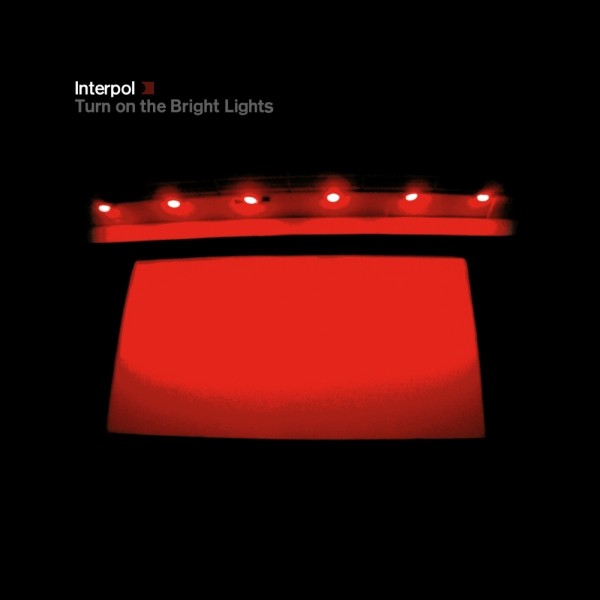Essential Listening: Interpol created an experience like no other on Turn On the Bright Lights

Turn On the Bright Lights was released in August 2002.
June 7, 2023
Tired of your Spotify playlists? The Purbalite is here to help with our Essential Listening series.
Turn On the Bright Lights, the debut studio album from NYC post-punk revival act Interpol, manages to perfectly capture the detached melancholy of post-punk, while adding the garage-rock familiarity of the revival.
There’s honestly nothing revolutionary about Turn On the Bright Lights, but it manages to be so very affectionate and raw that it doesn’t need to push boundaries to be a classic.
Lead singer Paul Banks combines his urgent crooning vocals with the intense, melodic instrumentation of his bandmates to create an atmosphere that can only be described by two colors – black and red – the colors of the album cover.
The album manages to combine isolation and intimacy in a way like no other project.
The opener “Untitled” is a great example of this. It takes an idea so impersonal and unfinished that the band failed to give it a name, yet forms a melodic experience full of almost-whining guitars and wispy vocals to create a song that ends up as indefinite as its title.
The track has no defined chorus, and the lyrics are barely intelligible, yet the atmosphere it creates is unmistakable. It opens the project with a misty, dark, and most importantly, emotional musical moment.
In contrast, “Obstacle 1,” is a song that has an abundance of definition. With strained and powerful vocals, Banks wails over a study guitar line and twanging backing guitar. Following the opener, “Obstacle 1” energizes listeners, before the rest of the album exhausts them.
“NYC” returns the energy found on the opener, though. A drowsy baseline and vocals create the same misty atmosphere present on the opener. This tonal whiplash continues into the next track as well, with “PDA” being intentionally dynamic.
Interpol likes to play with their listeners, creating moments of musical anxiety and anguish. For example, on “PDA,” the song abruptly changes from a bombastic tune to a lonely guitar line. The first time this occurs, the isolation only lasts mere moments, but the second time leaves the listener on edge for almost a minute.
“Say Hello to the Angels,” the next track in order, has the most positive sounding runtime on the LP, despite the lyrics not following suit. The instrumentation present has a wonderful bounce and energy, even if Banks continues his downtrodden lyricism.
“Hands Away” is easily the softest song on the album. With barely audible vocals and a simple drum and guitar line, the moment is hyper-intimate and almost beautiful, if that was a word that could describe Interpol’s music.
“Obstacle 2,” the sequel to the first “Obstacle,” is quite similar to its predecessor, yet it seems more like, well, an obstacle. With a harsh vocal tone, the track marks a change in the record, as the last track with an overly abrasive sound, with only “Roland” following in its footsteps later.
“Stella Was a Diver and She Was Always Down” is a six-minute odyssey of despair about a fictional girl named Stella. Banks warbles over the inconsistent guitar of the track during its journey of a runtime.
“The New” again plays on the anxiety that the band can make the listener feel, with a track that just will not end. Everytime the listener thinks the song is winding down to a close, it will blow back into full view, and surprise, and almost frighten the listener.
“Leif Erikson” is a perfect closer for the LP. Creating a soft yet abrasive sound, filled with despair, and some hope, the track takes the best elements of all of those preceding it to end the album.
While Turn On the Bright Lights is surely not an album that everyone can love, it is an album that everyone should listen to. No other album can create, with music, a tone and sound so filled with anxiety and anguish.



